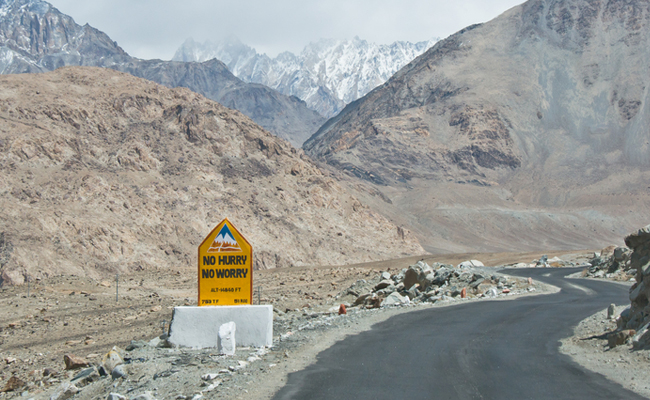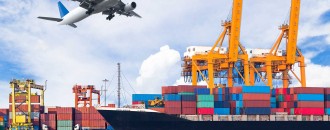
Prohibitive logistics costs, red tapism hurting India’s export competitiveness: ASSOCHAM
The Dollar Business Bureau | @TheDollarBiz  The Associated Chambers of Commerce and Industry of India (ASSOCHAM) says that India need not wait for the trade facilitation agreement to improve its “under-performing” trade logistics and reduce red tapism -- two parameters that hurt the nation’s export competitiveness. A study conducted by ASSOCHAM, “Transports and Logistics in India”, reveals that India is poorly placed among Asian peers when it comes to exports. The shipping cost of export from India (about $1,200 per container) is almost double that from China (about $600 per container) and about three times that from Singapore (about $400 per container), it says. “A high level of logistics costs could affect India’s competitiveness, particularly for the products of value additions,” ASSOCHAM says. This is partly due to low turnaround time in Indian ports. According to ASSOCHAM, the turnaround time at Jawaharlal Nehru Port Trust (JNPT) in Mumbai, which handles over 50% the country’s containers, is 1.1 days (36 hours), compared to less than 12 hours in Singapore, Dubai, Shanghai and Colombo. Sources told The Dollar Business that the turnaround time is much more (up to 4-7 days) in some eastern ports which at times have to depend on incoming ships to ship their exports. Port handling charges in India are also much higher compared to China, Thailand, South Korea, Malaysia and OECD countries, says the ASSOCHAM study. To add to the exporters’ woes is the delay due to red tapism; there are over 177 inter-state checkposts and 268 toll plazas across national highways in India. ASSOCHAM says, “Delays in transporting goods are one of the most irritating experiences for the businesses within India and those engaging with the international trade.” Under such circumstances India does not have to wait for the World Trade Organisation (WTO) to implement the Trade Facilitation Agreement (TFA) to make amends. Rana Kapoor, ASSOCHAM President, says, “Actually, whatever position we take in the multilateral fora, there are certain things for which we do not really need any nudge from the international obligations. If at all we want to become an exporting nation with a strong manufacturing base, the Indian logistics infrastructure be it port, airport, roads, rail network must be of international class, built seamlessly entire through the system.”
The Associated Chambers of Commerce and Industry of India (ASSOCHAM) says that India need not wait for the trade facilitation agreement to improve its “under-performing” trade logistics and reduce red tapism -- two parameters that hurt the nation’s export competitiveness. A study conducted by ASSOCHAM, “Transports and Logistics in India”, reveals that India is poorly placed among Asian peers when it comes to exports. The shipping cost of export from India (about $1,200 per container) is almost double that from China (about $600 per container) and about three times that from Singapore (about $400 per container), it says. “A high level of logistics costs could affect India’s competitiveness, particularly for the products of value additions,” ASSOCHAM says. This is partly due to low turnaround time in Indian ports. According to ASSOCHAM, the turnaround time at Jawaharlal Nehru Port Trust (JNPT) in Mumbai, which handles over 50% the country’s containers, is 1.1 days (36 hours), compared to less than 12 hours in Singapore, Dubai, Shanghai and Colombo. Sources told The Dollar Business that the turnaround time is much more (up to 4-7 days) in some eastern ports which at times have to depend on incoming ships to ship their exports. Port handling charges in India are also much higher compared to China, Thailand, South Korea, Malaysia and OECD countries, says the ASSOCHAM study. To add to the exporters’ woes is the delay due to red tapism; there are over 177 inter-state checkposts and 268 toll plazas across national highways in India. ASSOCHAM says, “Delays in transporting goods are one of the most irritating experiences for the businesses within India and those engaging with the international trade.” Under such circumstances India does not have to wait for the World Trade Organisation (WTO) to implement the Trade Facilitation Agreement (TFA) to make amends. Rana Kapoor, ASSOCHAM President, says, “Actually, whatever position we take in the multilateral fora, there are certain things for which we do not really need any nudge from the international obligations. If at all we want to become an exporting nation with a strong manufacturing base, the Indian logistics infrastructure be it port, airport, roads, rail network must be of international class, built seamlessly entire through the system.”





 to success.
to success.